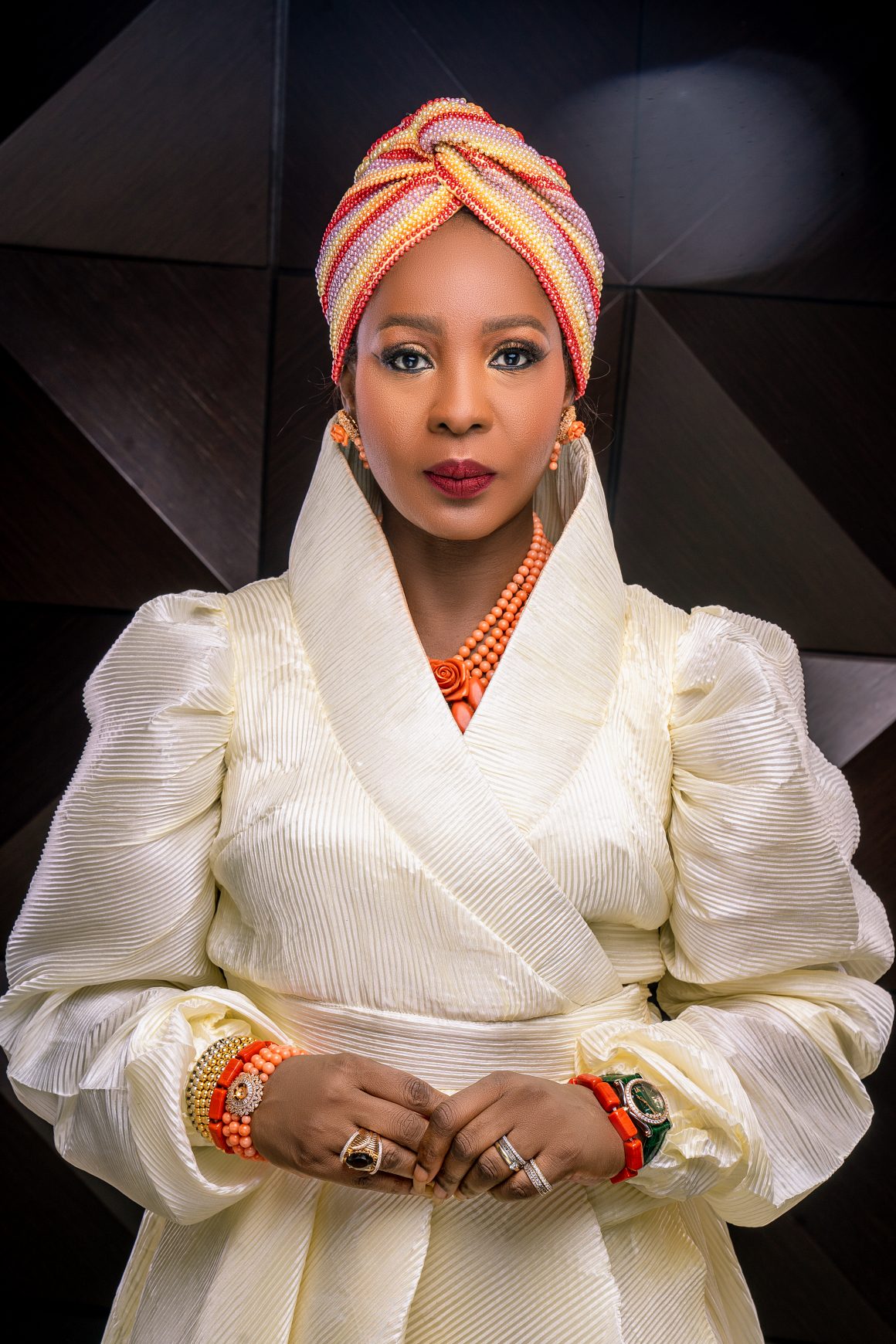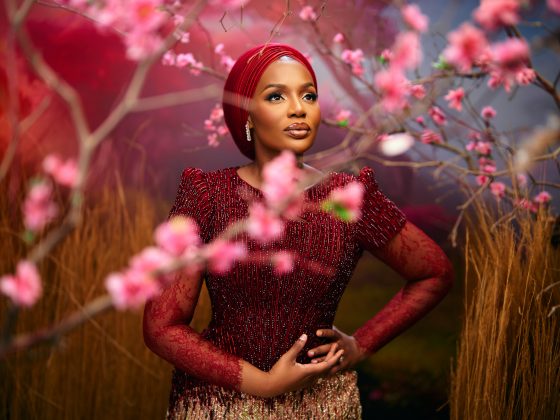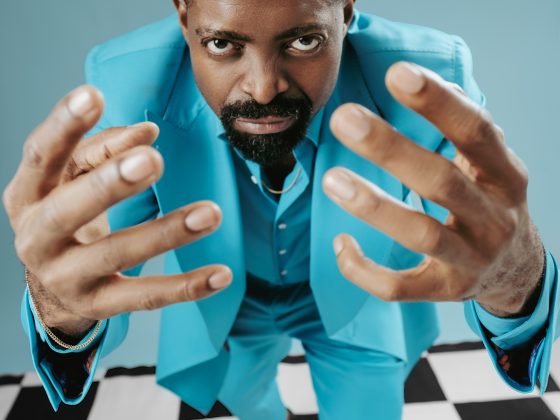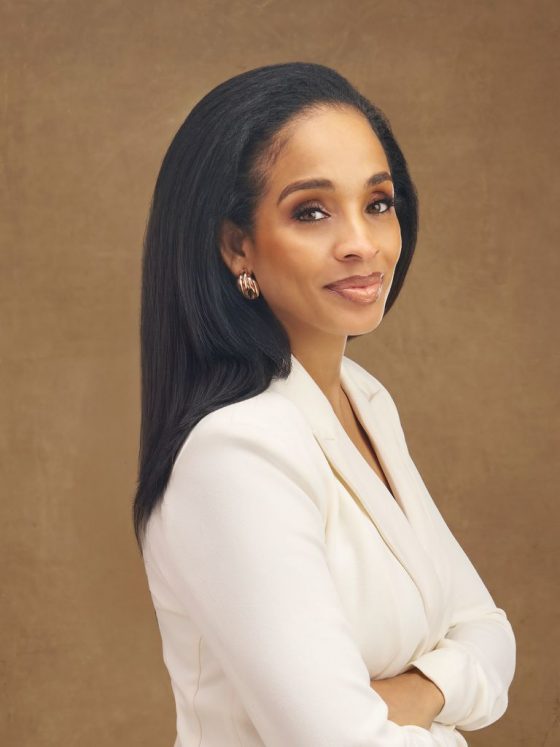One look at Her Excellency Ambassador Dr Mrs Olufolake Abdulrazaq, the esteemed First Lady of Kwara State and Chairperson of the Nigeria Governors Wives’ Forum, and what you see is an image of a classy, sophisticated, independent, and professional woman.
A seasoned diplomat with over three decades of service to the nation, she has served in various capacities, leaving an indelible mark on Nigeria’s diplomatic landscape by leading advocacies and influencing policies and programmes that directly affect women, youth, and children.
However, it is her unrivalled passion for charity and humanitarian work that truly sets her apart. Recognising the pressing issues affecting the survival and development of women, youth, and children, Ambassador Dr Mrs Olufolake Abdulrazaq established the Ajike People Support Centre. Through this transformative initiative, she has ignited a powerful movement, raising consciousness and mobilising purposeful action to address these pressing challenges. The Ajike People Support Centre serves as a beacon of hope, providing vital resources, support, and opportunities for vulnerable individuals and communities. Under her visionary leadership, the centre has become a catalyst for positive change, tackling issues such as healthcare, education, poverty alleviation, and gender equality. Her relentless pursuit of a better future for all has earned her widespread admiration and respect. Olufolake’s incredible dedication to humanity extends beyond the borders of Kwara State. As the Chairperson of the Nigeria Governors Wives’ Forum, she spearheads collaborative efforts with other First Ladies nationwide, amplifying their collective voices and driving impactful initiatives that create lasting change nationwide.
In a heartwarming turn of events, Ambassador Dr Mrs Olufolake Abdulrazaq has graciously agreed to an exclusive interview just in time to mark her 56th birthday on August 2nd. This comes after a two-year wait, during which the interview had been put on hold as she mourned the untimely loss of her beloved younger sister, Mrs Olusenre Davies-Babatunde, who also happened to be an almost birthday mate, albeit four years apart. The decision to finally proceed with the interview holds deep sentimental significance as it brings to light the cherished memories of the First Lady’s once inseparable bond with her late sister. In the past, the duo was known for their captivating birthday photoshoots, which showcased the profound love and camaraderie they shared.
Now on the cusp of her 56th birthday, the First Lady intends to dedicate this interview to the memory of her late sister as a heartfelt tribute to the bond they once shared. Through this conversation, she hopes to not only shed light on her roles and responsibilities as the First Lady of Kwara State, her vision for a more equitable society, and the transformative power of her Ajike People Support Centre but also showcase the warmth and love that have guided her through difficult times. This week, we uncover the extraordinary journey of a woman devoted to empowering humanity, one act of compassion at a time.
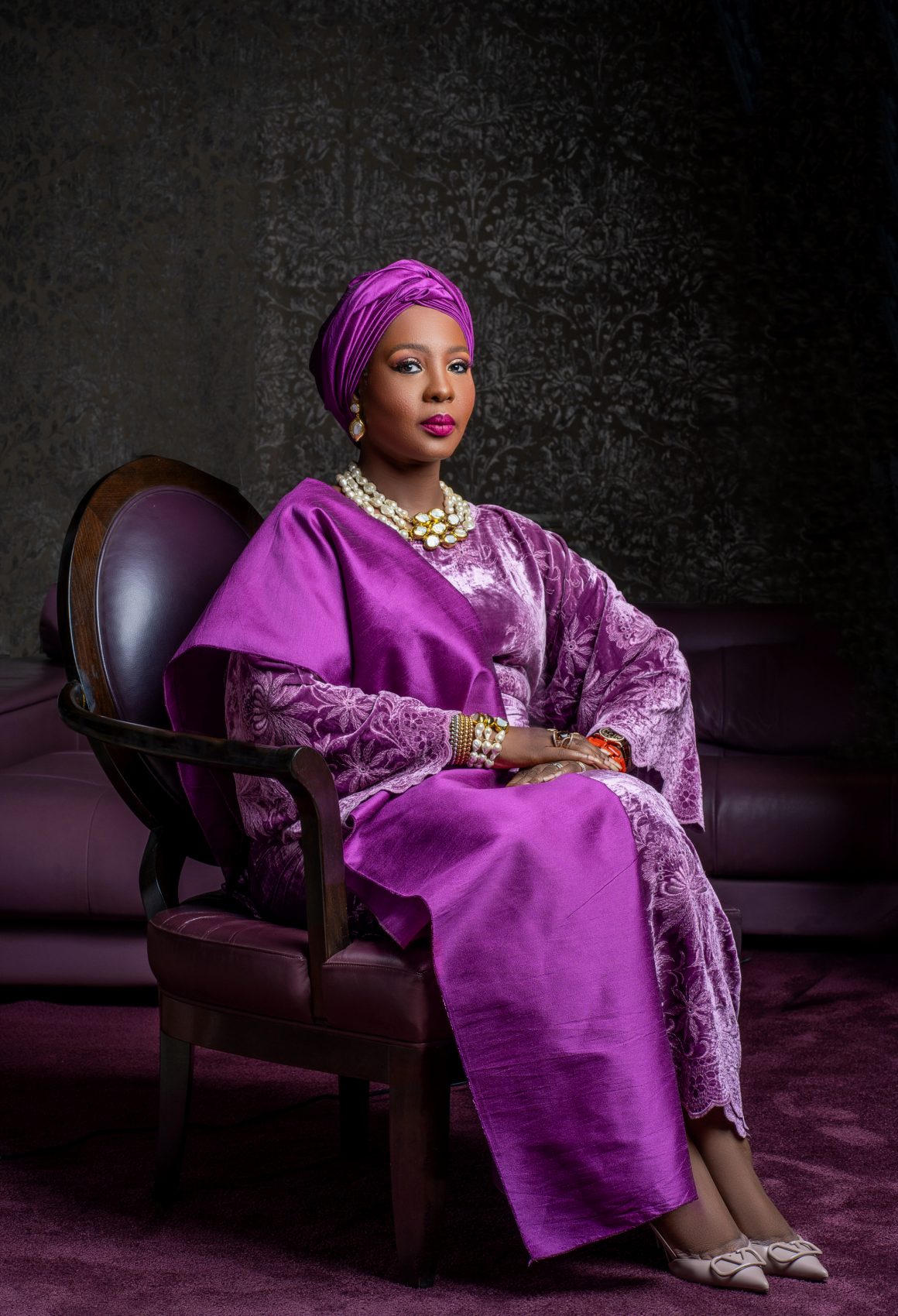
Congratulations, Your Excellency, on your recent appointment as Chairperson of the Nigeria Governors Wives’ Forum. That’s a really big one. How’s it going so far?
Thank you for your kind words and for having me. To the glory of the Almighty, it has been going so well, and I sincerely believe that current realities present us with the opportunity to improve on what’s on ground while promoting the ideals of the forum.
So, what are your priorities and objectives as Chairperson? How do you envision making a positive impact at the national level?
As you may well be aware, before I became the Chairperson of the Nigeria Governors Wives’ Forum, I served as the Secretary of the Forum. As such, I was in tune with the projections and deliverables of the forum, even before I got to be at the helm of affairs at the forum.
Our priority is to ensure that the most indigent among us get to feel the impact of government in all facets through deepening engagements with donors and development partners to support the efforts of our husbands, the State Governors.
These engagements include spotlighting, with the view to improving the enrolment of children of school age in schools, drawing support for the empowerment of women, girls, and youths through skills acquisition for self-reliance and financial independence, sustaining our advocacy for an end to gender-based violence, and strengthening protective laws as promulgated by States across the federation.
Consequently, we are committed to completing all ongoing projects of the Nigeria Governors Wives Forum and initiating new projects in accordance with the thematic areas of the forum’s interventions, i.e., nutrition, economic empowerment, drug abuse, mental health, menstrual hygiene, sexual and gender-based violence, and intensifying advocacy on getting fairer deals for working nursing mothers.
Also, at the forum, we focus on women in leadership positions and support young women with political aspirations.
You know, there are all sorts of assumptions, but tell me, what really is the role of a First Lady in Nigeria? And what impact are they expected to have on society?
While the role of the First Lady is widely believed to be complementary to their spouses’ work, the impact these women make in bringing succour to the indigent cannot be overemphasised. This is evident in the successes achieved in their interventions through their respective charity initiatives. The impacts of Better Life for Rural Women, the Future Assured, and the Renewed Hope Initiative, to mention a few, still live in recent memory and encapsulate how, through selfless service, first ladies have been able to stoke actions and influence decisions to ensure that women and children, in particular, get closer attention on all their issues of concern. In this regard, however, I believe that First Ladies stand to make more impact going forward.
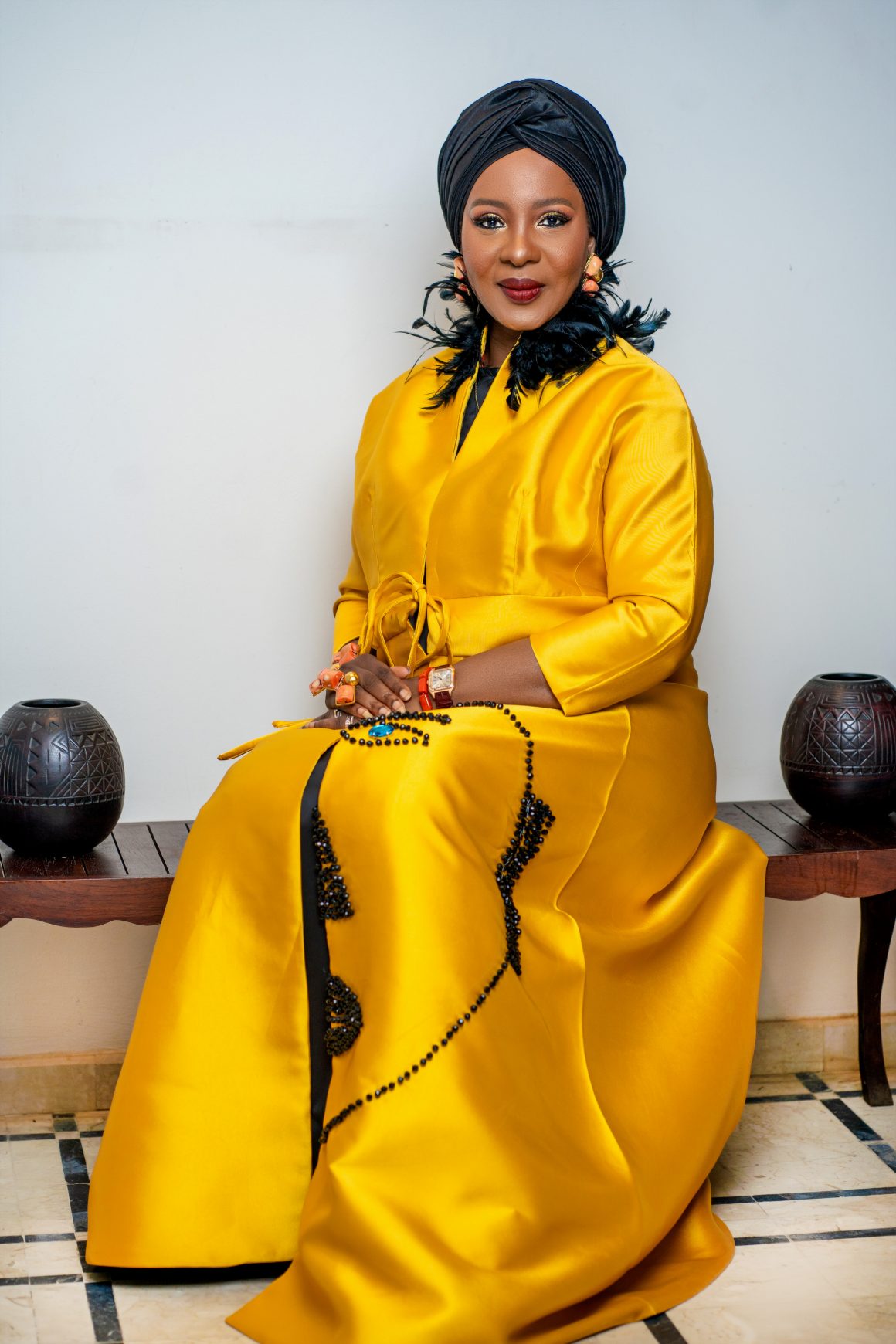
What’s the most ridiculous misconception you have heard about being a Nigerian First Lady?
I have heard near-impossible requests from people simply because you are the First Lady. While we would not let their misconceptions deter us, I go out of my way at times to enlighten such people on how we can best work to position them to benefit from the programmes and activities of the government, and that is why you will see that my skills acquisition programme is focused on positioning people to benefit from the programmes of the government that promote entrepreneurship.
Let’s talk about your work as First Lady of Kwara State. What areas have been most fulfilling for you?
I find fulfilment in every one of my initiatives that benefits Kwarans and complements the efforts of Governor Mallam Abdulrahman Abdulrazaq in bringing good governance to the people of the State.
The most fulfilling area is the vocational skills acquisition scheme of the Ajike People Support Centre (my charity initiative). Through this initiative, I have seen people practically move off the poverty line because we equip beneficiaries with skills to manage their income apart from the vocations they were taught.
The most inspiring part of this narrative is that graduates of this scheme come to us for beneficiaries to train as their way of supporting the initiative. This feat is inspiring to my team and me, as the effect of our effort is not only improving the economy of our state but practically taking people out of poverty.
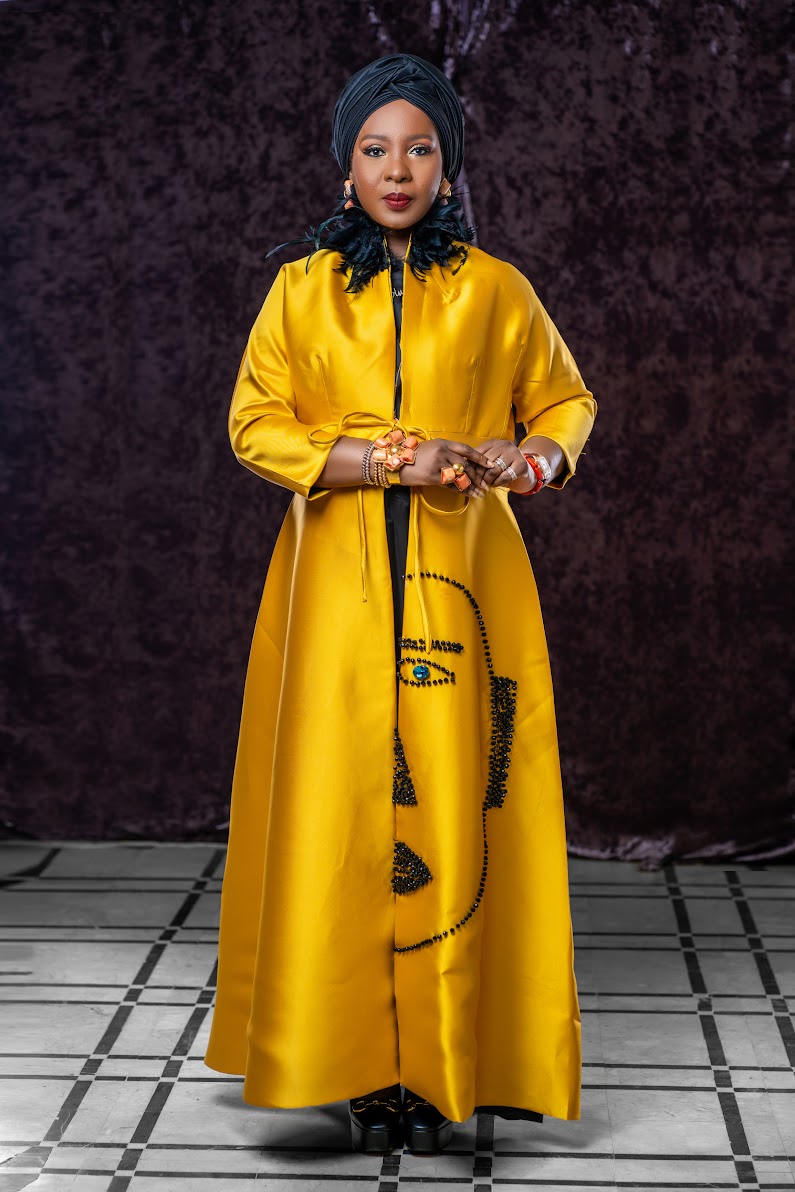
The Ajike People Support Centre is a significant part of your charitable and humanitarian work. What are some of the projects and initiatives that were undertaken through this centre and their impact on the community?
As I mentioned, our strategy at the Ajike People Support Centre is impact-driven; hence, we employ citizen engagement through the needs assessment of prospective beneficiaries before training to provide tools or support. The skills acquisition and empowerment initiative draws beneficiaries from the 16 local government areas of the State. The beneficiaries are trained in a vocation of their choice, and we present tools to practice the trade after their training.
The centre has trained beneficiaries in tailoring, make-up and makeover, bead-making, tie and dye, baking, and confectionary, among others, and trained youth farmers in the use of drone technology in their ventures. While tools such as sewing machines, gas ovens, and grinding machines have been presented to over 35,000 beneficiaries since inception,
It may also interest you to know that we also embarked on health outreaches to sensitise and support the care of people living with cancer. We also lead advocacy and sensitization on immunisation, tuberculosis, and malaria, as I am a member of the Kwara State Task Force on immunisation and Primary healthcare.
The Ajike People Support Centre, apart from the people-oriented approach of its activities, equally brings to the fore how, when empowered, an individual can make a remarkable impact within the shortest possible time.
This is evident in the testimonials of beneficiaries of our empowerment initiatives, school scholarship schemes, health outreaches, social interventions, and other charity concerns, which ultimately elicit positive feedback while bridging the unemployment gap in the State. As we speak, tens of thousands of women and youth have benefited from this scheme.
What motivated you to establish the Ajike People Support Centre, and how do you see it evolving?
The Ajike Peoples Support Centre was founded out of passion and sincere commitment to create economic empowerment for people through vocational skills acquisition, encourage education advancement, and ensure the well-being of the people through health interventions that would be wholesome.
Since inception, we have engaged in the training and equipping of tens of thousands of women and youths with skills of their choice and providing them with work tools; providing scholarships for indigent students; supporting the health concerns of our people; leading advocacies and providing interventions on issues that concern our people.
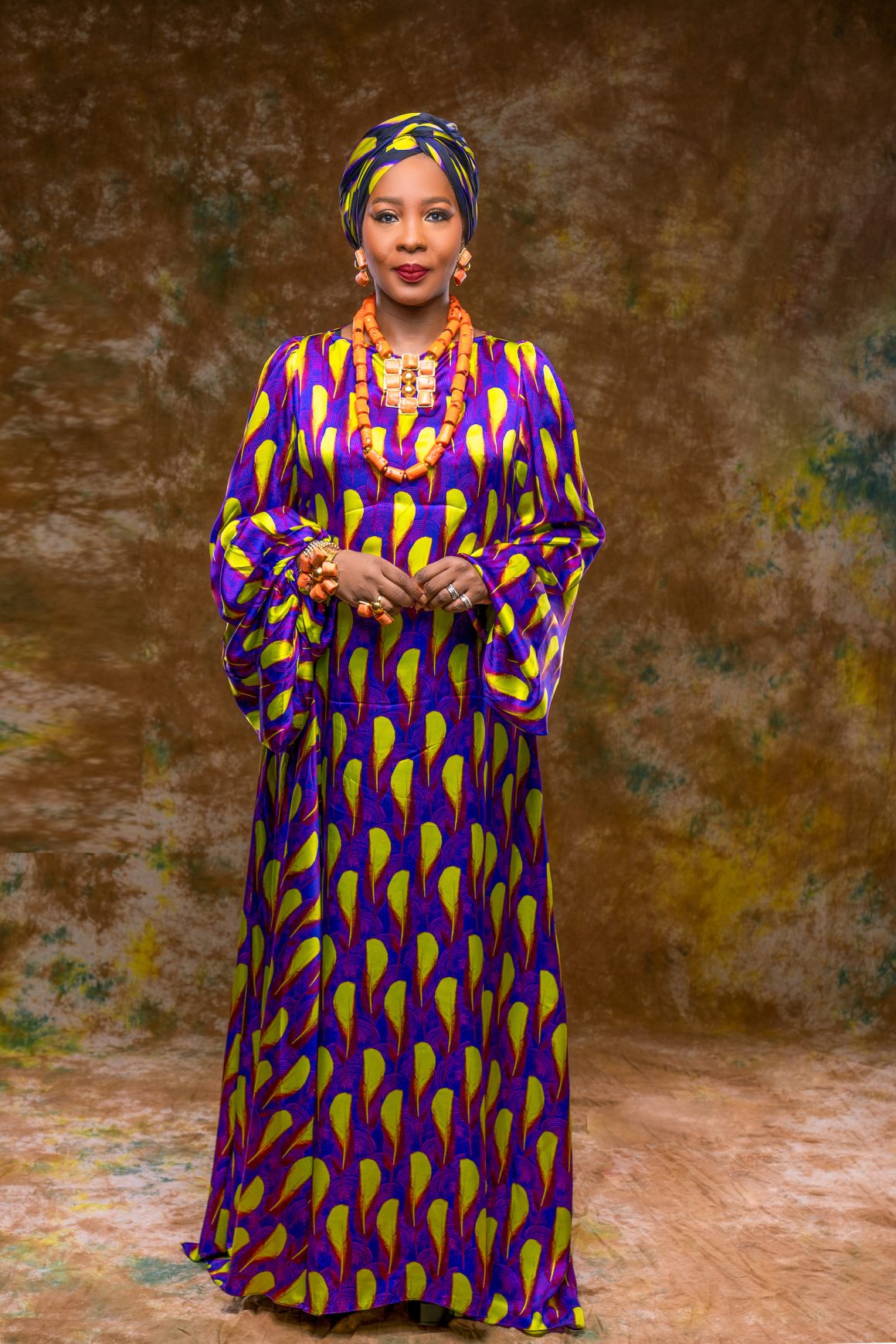
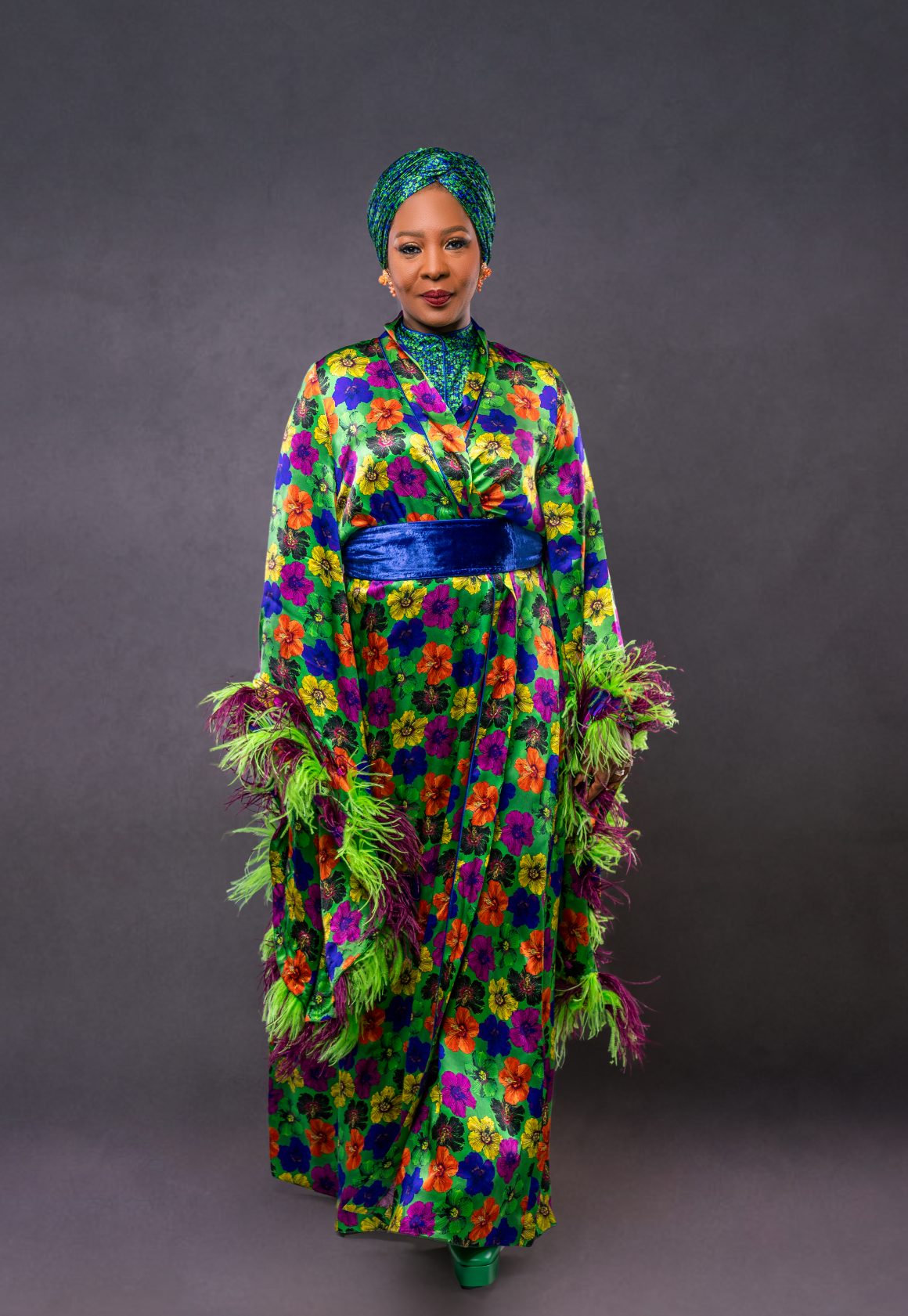
Most of your work here emphasises women’s, youth’s, and children’s empowerment. Why is this particularly important to you?
Thank you for this. For the purpose of this conversation, let me reiterate that I am an advocate of inclusiveness. Hence, as I drum up support for women and children, I also seek the inclusion of men and boys. This is simply because men and boys are veritable partners in achieving an all-inclusive world, so the whole of humanity is particularly important to me without fear of segregation. Women and youth, as you will agree with me, form the largest percentage of our population, hence the need to appeal to their concerns.
How do you measure the impact and success of your initiatives and programmes?
As I mentioned earlier, the Ajike People Support Centre operates on a well-thought-out strategy that sees the importance of feedback to guide our conduct and improve the scope of our interventions. In this regard, the centre engages follow-up teams to periodically pay visits to beneficiaries to learn firsthand about their challenges and propose solutions that meet every reported concern.
However, our impacts and successes are measured in the lives our different initiatives have touched.
Talking about success, I’d also like to touch on longevity. Will your projects outlive your tenure as First Lady?
Very well, it sure will; as highlighted in this discussion, the Ajike People Support Centre is self-sustaining, and as I mentioned in the cause of this conversation, beneficiaries from our initiatives are giving back in the hope that their gestures will create a pathway for more people to be self-reliant. Remember, I told you this was borne out of sincere passion. We encourage this gesture; my office and the Ajike People Support Centre are not resting on our oars as we continue to engage our development partners with a view to touching even more lives. So you can see that we are well structured to sustain our activities even after office.
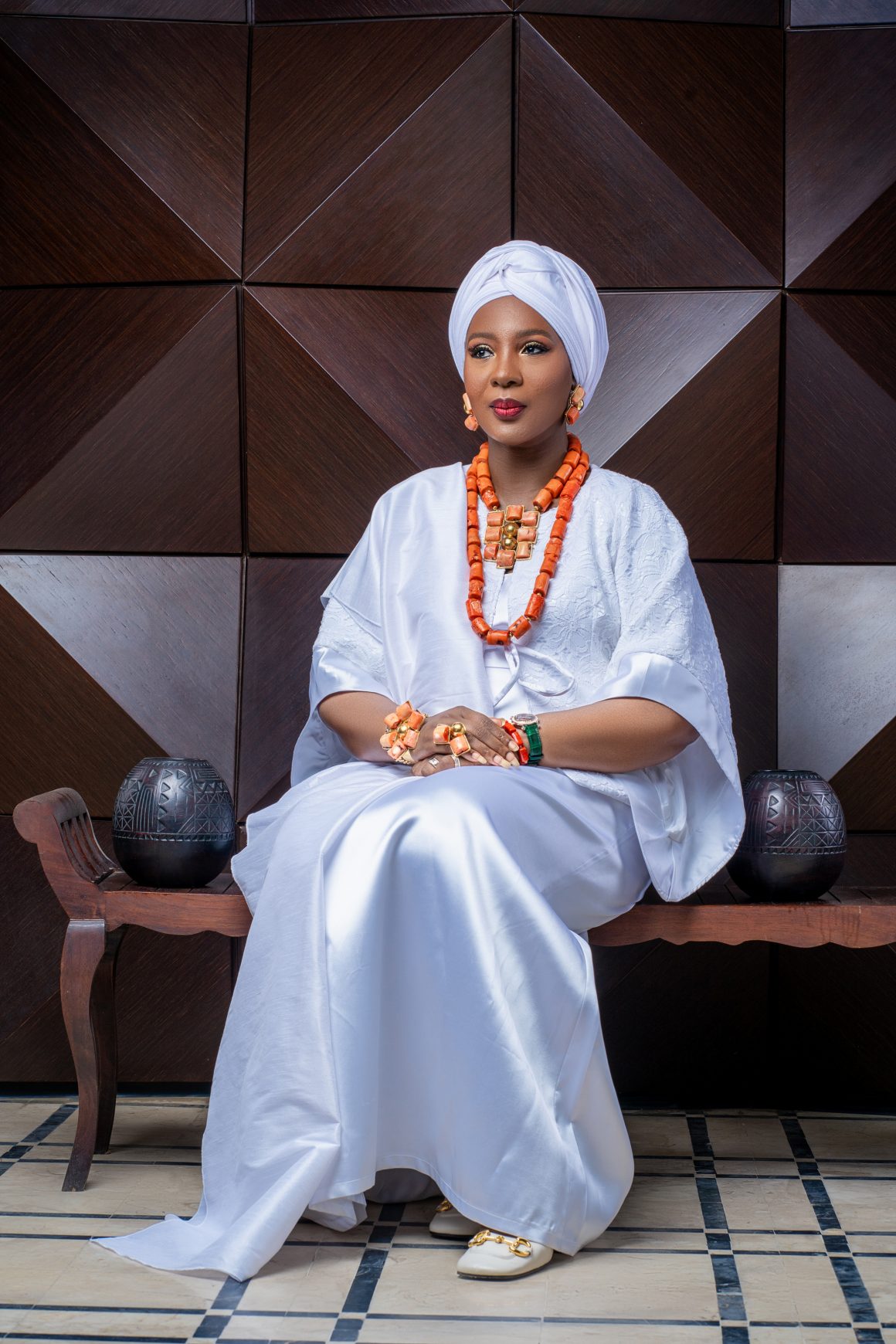
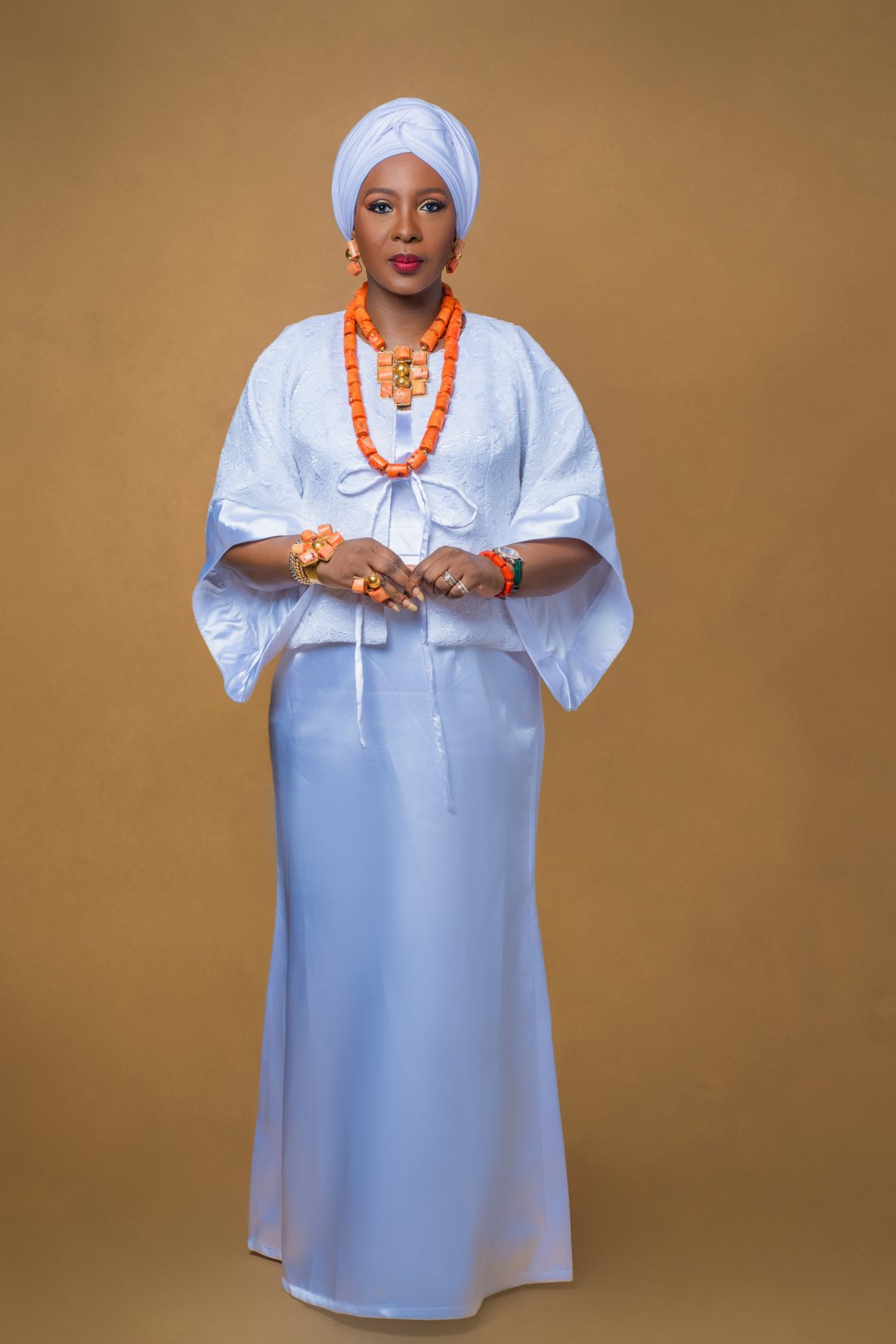
How do you balance your role as First Lady with your personal life? Are there any specific strategies or routines you follow?
For most of my adult life, I’ve worked. So, I started work just after my Master’s Degree. And I’ve worked all my adult life, even while having children. I would finish my maternity leave and go back to work. And it was important to be able to learn how to manage my time effectively. So I worked on the go in the car on my way to pick up the children on those days. If I have my lunch break, I might work through lunch to carve out a lot of time for myself. So sometimes what I do to be able to spend time with my children, who are now adults by the grace of God, is to work with them. I ask them a lot of questions. And that way, we’ve turned work into fun. Over lunch, I might be working, asking questions, and involving them in my work life. Over dinner, we do some of the same things as well. So if I need to finish a work call while I need to do some other things, I would probably do it through dinner, sit with them through dinner, and then get up for like 15 minutes and go and sit somewhere quietly and answer the call and come back and join them. You must be innovative in how you balance work and your personal life. And it’s been good, actually. Because, you know, the children have been understanding, and they’ve worked very, very well with me in making sure that we are creative in finding time to be together.
What about time for your family? I assume it’s no longer the same. What activities or traditions are you still able to enjoy together?
I would say it is pretty much the same. As I said, we’ve always been creative with our time. And we continue to do so. My kids are grown up now. So most of the time, what we do now is spend family time together. Have dinner, have lunch, and carve out a short holiday. And then we spend more time on the phone. With today’s technology, it’s really good, you know. You can FaceTime or talk to family members whenever you find a suitable moment. With regards to my husband, he’s also always been very good with me working and carving out time to have quiet time and family time together. And I’m very grateful for this.
Do you ever feel that guilt most of us experience when we’re so focused on one part that we neglect another?
You have to pick the right part and do the right thing. That way, the feeling of guilt is lessened. In my case, I focus a lot on my family and work.
And what I may have missed a little bit is social life. My friends have to understand that I give a lot to my family and a lot to my work. So there’s very little time left over for social life. They are quite understanding, though. Any working mother will tell you how difficult it is. We keep working on it; that way, you don’t feel too much guilt; you have to prioritise properly for the things that matter.
What would you do for a day if you were just Folake?
I would do more self-care and pampering. I love to spend time in the spa—not long, long hours, but I love a very good massage. I love reflexology.
I love facials. So I would love to have more time to do that. Also, I would love to write and read some of the books I have been meaning to read. I also want to reprint some of my father’s books. As you may know, my father was a veritable author and journalist who wrote many books and plays. He used to stage plays in his days, and I have a lot of his books that I’ve dusted up and want to reprint and put out there, and I have some books in me as well. I still try, though, even with this hectic schedule. I’ve promised myself to carve out a little time to finish them.
How do you define success in your official and personal lives?
Success, to me, is fundamentally being fulfilled. Having a good family life and being fulfilled in what you’ve done in public or official life. This may mean so many different things to so many different people. I don’t think we all have a universal definition of success. But definitely, fulfilment is important. It’s not enough to have success in public life and have an awful family life, you know. I don’t define that as success at all. I think it’s important to have a good family life and be able to say you’re fulfilled with what you’re doing publicly. And in that way, I think success would give you happiness. So those are my definitions of success.
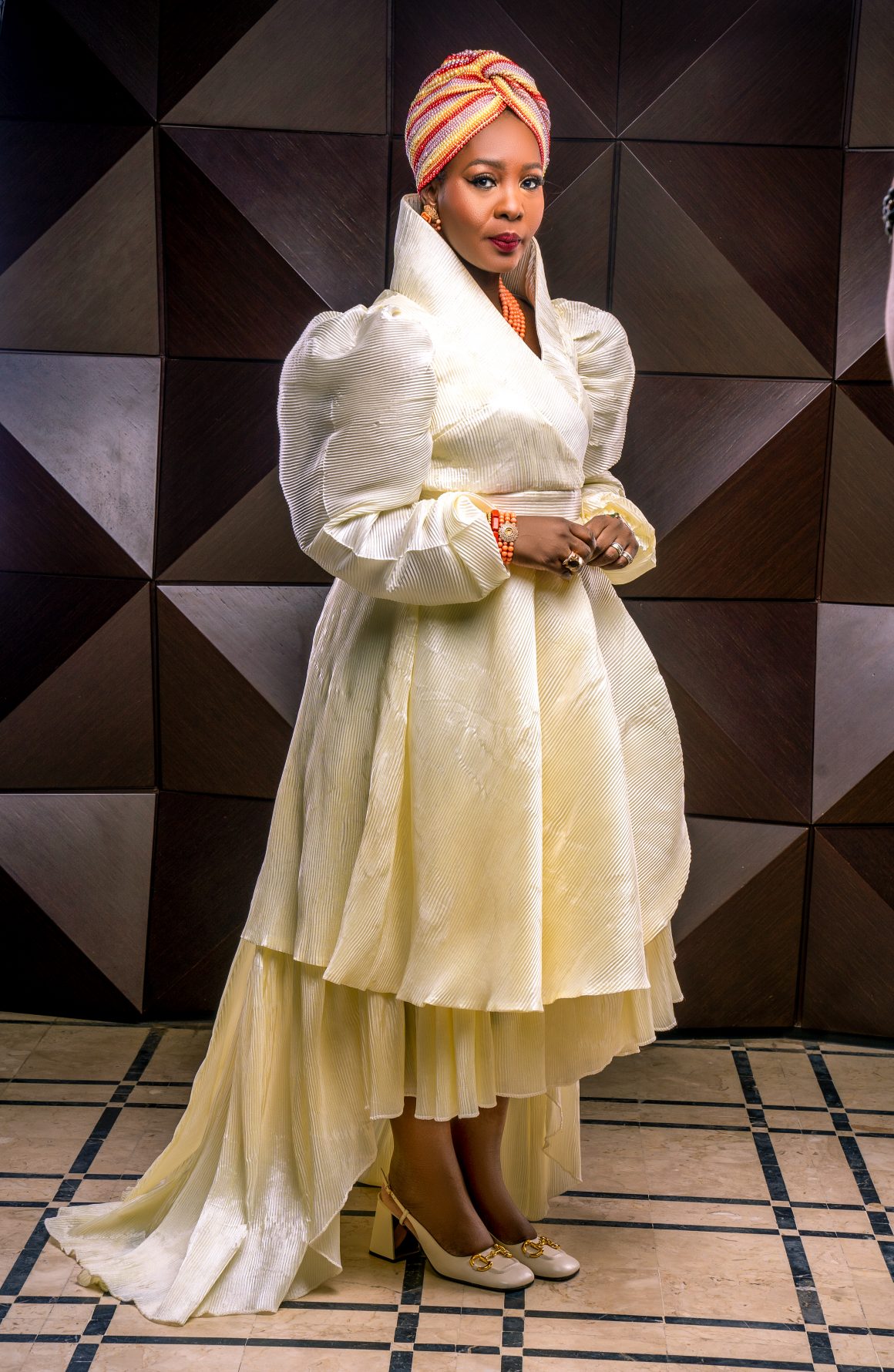
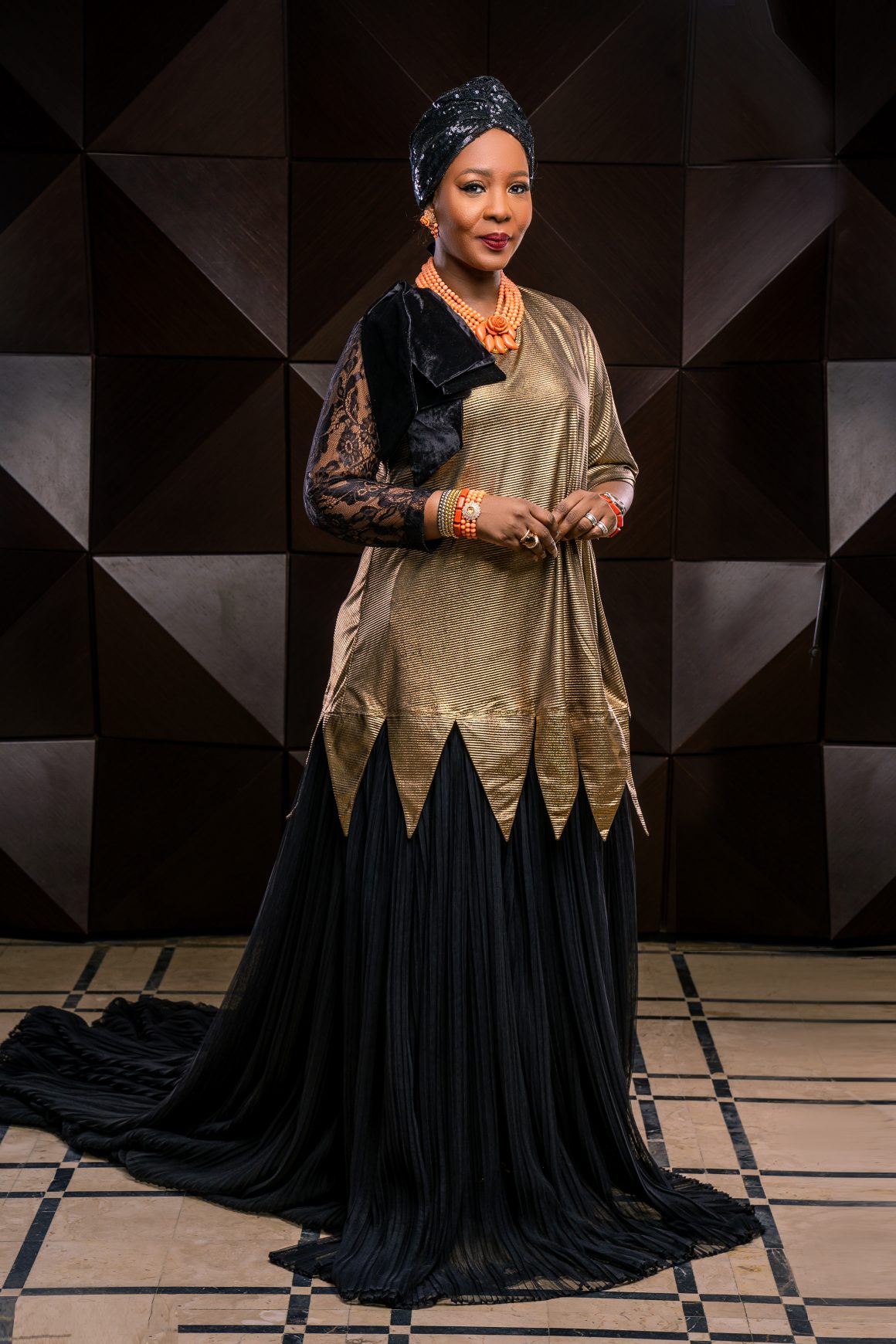
What are your aspirations and goals for the future, personally and in your role as the First Lady of Kwara State and Chairperson of the Nigeria Governors Wives’ Forum?
First and foremost, I look forward to being a senior member of the family and ensuring that we have all the grandparent and family functions that every woman looks forward to. I hope that, personally, I’m fulfilled in this way. As I mentioned earlier, part-time writing, being a senior member of the family, enjoying a little time off with my family, and a lot of laughs, especially in the future, I also hope that I remain relevant in my State and that people still call on me, look at me as the Grand Matron and Grandmother of the State, and do necessary things within the State. I’ve started my education, and people support centre, and I plan to do that for a good number of years into the near future. We’ll be able to do more things and continue to help people.
As regards being Chairperson of the Nigeria Governor’s Wife’s Forum, you already know what we’re doing today. We’re working a lot on so many things. And I hope we can carry that into the future. We currently have a role for the former chairpersons, and we’re hoping they can have some role they can continue to play in the future. That is what I want to have: a role where I can still contribute, helping to map out, helping to shape, and helping to look into the future as things evolve with the forum. So I think these are the things that I would like to see happen.

